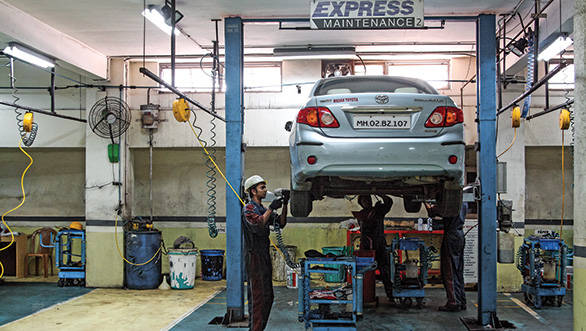How GST affects prices of auto spare parts, accessories and service
GST! The word has been on everyone's lips from the last few weeks. While some are upbeat about the whole process (yes smokers, we meant you), few like the automobile industry don't entirely seem convinced (Accord, Ciaz diesel and Camry - we are sorry for you). Well, as they say there are two sides to the same coin. But a few things explaining GST. It expands to Goods and Services Tax. GST has been prevalent in many Asian as well as European countries. GST can either be implemented in the single or the dual mode. The former aims at a single tax across the horizon in a country. Places like Australia, which don't really have too many poor families, have adopted the single GST method. India has chosen the dual method where the same tax that has been levied on a rich and swanky family isn't applicable to the poor.
Likewise, for automobiles too, the tax slabs are different. These basically eliminates the VAT as well as state-wise specific tax for bringing the vehicle from its manufacturing plant to different showrooms across the country. Essentially while spare part prices have stayed the same, GST has brought in an increase in the labour charge to 18 per cent from the existing 15.5 per cent. So has this increased the overall service costs or how manufacturers are dealing with it. We spoke with both car as well as motorcycle dealers, and here is what we found out.
 Image used for representational purpose only
Image used for representational purpose only
Car service workshops have reduced the original price of their spare parts. For example, if a disc pad of a car from a mass manufacturer costs Rs 700, the price of the original item will be reduced by 28 per cent. At the time of checkout, the applicable 28 per cent GST will be levied, bringing the price of the pad back to Rs 700. This ensures that the customer doesn't have to pay extra. While the few luxury car manufacturers we spoke to said that they still haven't started billing customers, a service executive on the condition of anonymity said that the price will largely be the same as before.
In the case of two-wheeler workshops, the overall prices of spares have gone down by a bit. For example, a 1.0-litre engine oil packet now costs around Rs 30 less than the original amount. This more or less compensates for the increase in labour charge. Those selling accessories too have to pay 28 per cent GST as opposed to the 14 per cent before. However, the same method is being applied by these vendors too. One portal we contacted confirmed that they are absorbing the higher cost of the accessories as part of the GST structure so that customers don't end up paying more than before. The only extra that they charge the customers would be on the delivery and that depends on the location.
In a nutshell, more often than not, most of the manufacturers and workshops are absorbing the cost. However, it is safe to say that in a week or two when everyone will have settled with the new taxation regulations, these costs will be transferred to the end user - that's you Mr Customer.
Here is what multi-brand car service provider CarXpert have to say
Read more about GST and its effect on automobile industry here.














